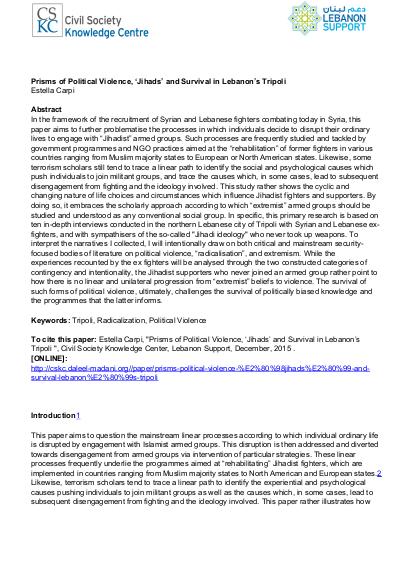
This paper aims to question the mainstream linear processes according to which individual ordinary life is disrupted by engagement with Islamist armed groups. It is based on ten in-depth interviews conducted in the northern Lebanese city of Tripoli with Syrian and Lebanese ex-fighters, and with sympathisers of the so-called "Jihadi ideology" who never took up weapons. It shows the cyclic and changing nature of life choices and circumstances which influence Jihadist fighters and supporters.